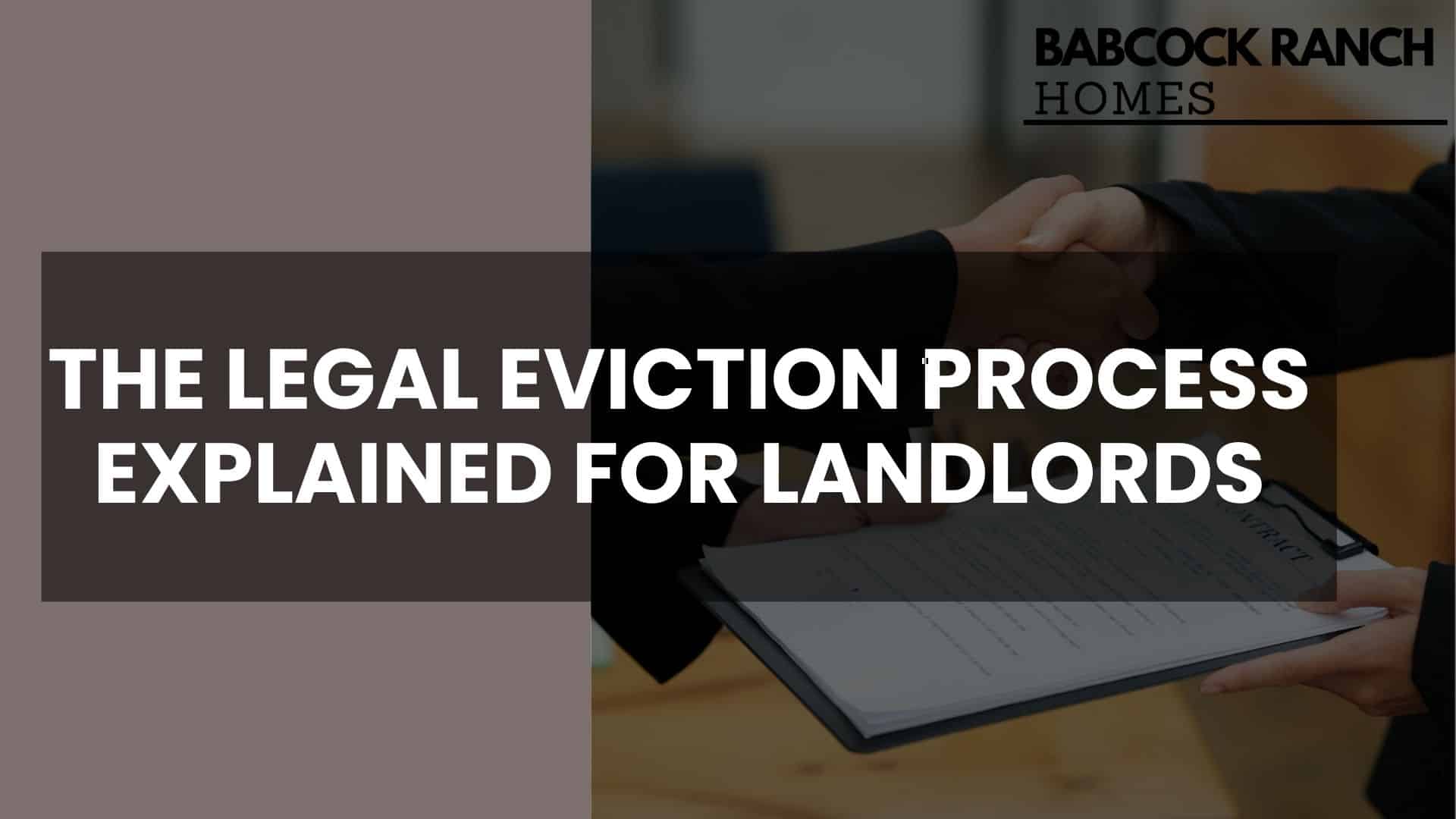
In 2023, nearly 38% of U.S. home sales used non-traditional funding. This includes private financing agreements, which are more common than traditional mortgages in competitive markets. This trend shows why more buyers and sellers are looking for creative ways to buy and sell properties.
Private financing lets buyers skip bank loans. Instead, they pay the property owner directly each month for a set time. This method is great for fast markets like Florida, where homes sell quickly.
There are three main reasons for this trend. First, rising interest rates make it harder to get a mortgage. Second, retirees want a steady income. Third, investors want to quickly use the equity in their properties. These agreements offer flexible terms, including down payments and interest rates, which benefit both sides.
Key Takeaways
- Accelerates closing timelines compared to bank-funded purchases
- Enables flexible negotiation of payment terms and interest rates
- Helps buyers with unique financial situations qualify more easily
- Provides sellers with possible tax benefits and regular income
- Requires careful contract reviews to protect all parties involved
What Is Seller Financing in Real Estate
Seller financing is a way to buy property when banks say no. Owners lend money to buyers, who pay back in installments. This helps both sides with flexible terms and quicker deals.

Key Components of Seller-Financed Deals
Every deal needs four main parts:
- Down Payment: Usually 5-20% of the price
- Promissory Note: A legal plan for paying back
- Deed of Trust: Makes the property a security
- Interest Rate: Can be talked about and agreed upon
In Florida, land contracts must be recorded to be legal. Unlike bank loans, these deals can have custom payment plans and balloon payments.
Types of Seller Financing Arrangements
There are five main types of deals:
- Land Contracts: Buyers build equity while sellers keep title
- Lease-Purchase Agreements: Rent payments can help with down payments
- Wraparound Mortgages: New financing adds to existing loans
- All-Inclusive Trust Deeds: Mixes different debts together
- Junior Liens: Second financing behind a main mortgage
Places like Babcock Ranch show how seller financing helps buyers. It offers legal options when banks are tough. It also protects the seller’s interests.
How Seller Financing Works Step-by-Step
Seller financing is different from traditional mortgages. It doesn’t need bank approval and makes deals directly between buyers and sellers. Let’s look at how these transactions work.

Role of Promissory Notes and Deeds
Every seller-financed deal starts with two key documents: a promissory note and a deed of trust. The promissory note is the buyer’s promise to repay the loan. It outlines payment details and what happens if payments stop. The deed of trust makes the property collateral, allowing sellers to take action if payments are missed.
Here’s a typical step-by-step progression:
- Negotiation Phase: Both parties agree on price, interest rates, and repayment terms without lender involvement.
- Document Preparation: Legal teams draft contracts, focusing on clauses like balloon payments or early payoff options.
- Title Transfer: The deed moves to the buyer once initial payments are made, though the seller retains a security interest.
- Payment Execution: Buyers make monthly installments directly to the seller, often with flexible timelines.
- Final Settlement: Balloon payments or refinancing typically conclude the agreement after 3-5 years.
Title insurance is also important. While banks require full coverage, seller-financed deals might use limited policies to save money. This makes closings faster, sometimes in under two weeks, compared to the 45+ days for conventional loans.
Benefits for Buyers in Seller-Financed Transactions
Seller financing helps homebuyers who struggle with traditional mortgage approvals. It offers financial flexibility, helping buyers in tough real estate markets.

Expanding Homeownership for Diverse Financial Profiles
One big plus of seller financing is it’s open to non-traditional borrowers. About 16% of Americans work for themselves, facing bank hurdles. Seller deals often:
- Accept alternative income verification methods
- Offer adjustable down payment terms
- Consider rental history as credit proof
- Allow faster closing timelines (often under 2 weeks)
This makes seller financing great for gig workers, entrepreneurs, and new immigrants. Unlike regular loans, these deals use bank statements or contract records to show you can pay back.
Buyers can close deals much faster with seller financing. The process is simpler, cutting out third-party underwriters. This means less paperwork and no last-minute denials. Plus, you skip the mortgage insurance costs found in FHA loans.
Advantages for Property Sellers
Seller financing makes real estate deals better for everyone, even in busy markets. Buyers get more options, and sellers get benefits that regular sales can’t offer. Let’s look at how this approach adds value for property owners.
Attracting More Buyers in Competitive Markets
In Florida’s lively real estate scene, seller-financed homes catch more eyes than usual listings. We’ve noticed homes with financing options get 40% more interest than those sold for cash in places like Tampa and Orlando. This method really helps when:
- Interest rates climb – Buyers look for other loan options
- Inventory shrinks – Homes need something special to stand out
- Economic uncertainty rises – Buyers want deals that are flexible
There are five main reasons why sellers find this approach attractive:
- Tax-deferred income from installment sales (IRS Section 453)
- Premium pricing – Homes can sell for up to 15% more
- Faster closings – Deals can close 22 days sooner
- Recurring cash flow from agreements that earn interest
- Expanded buyer pool – It attracts more buyers, including self-employed ones
Miami’s luxury condo market shows the power of seller financing. In 2022, when rates were high, developers who used seller financing sold units 27% faster than others. The secret is to balance risks with solid legal protections and creative deals.
Seller Financing vs Traditional Mortgage Loans
Choosing between seller financing and traditional mortgages depends on what you value more: flexibility or standardization. Banks stick to strict rules, but seller financing offers unique chances for buyers and sellers. It’s about finding the right fit for your needs.
When Conventional Lending Falls Short
Traditional mortgages are great for those with good credit and steady jobs. But, nearly 1 in 3 applicants get turned down. Reasons include:
- Credit scores below 620
- Non-traditional income sources (freelancers, entrepreneurs)
- Properties needing major repairs
- Urgent closing timelines under 30 days
Seller financing is a better option for these situations. It allows for customized payment plans that banks might not approve. A big plus is avoiding due-on-sale clauses that force immediate repayment if the property changes hands.
7 Key Differences at a Glance
- Approval Speed: 2-7 days vs 45+ days for bank loans
- Down Payments: Often 5-10% vs 3-20% for conventional
- Foreclosure Process: 90-day average vs 18-month bank proceedings
- Interest Rates: Negotiable vs market-dependent
- Prepayment Penalties: Rare vs common in first 5 years
- Documentation: Simplified vs extensive verification
- Renegotiation: Flexible terms vs fixed contracts
Seller financing is great for investors who need to make quick purchases. A Florida case showed an investor bought a rental property in just 11 days. This is much faster than traditional lenders can manage.
Choosing Your Path: Decision Framework
Go for seller financing if you:
- Need to close faster than 30 days
- Have irregular income documentation
- Want adjustable payment schedules
Choose traditional mortgages when:
- Seeking the lowest available interest rates
- Requiring large loan amounts ($500k+)
- Prefer fixed-rate security
Structuring a Seller Financing Agreement
Creating a secure seller financing agreement needs careful planning. It must balance the interests of both the buyer and seller. Unlike traditional loans, these agreements require customized terms that address unique risks. They also need to follow state regulations.
We will look at the legal safeguards and professional support needed. This is to build effective agreements.
Protecting Both Parties Legally
Strong contracts are key to avoiding disputes in seller-financed real estate deals. Florida law requires six key clauses for enforceability:
- Payment schedules: Specify due dates, late fees, and acceptable payment methods
- Interest rate caps: Follow Florida’s usury laws (max 18% for written contracts)
- Default protocols: Define notice periods and cure options before foreclosure
- Collateral details: Identify secured assets beyond the primary property
- Insurance requirements: Mandate hazard coverage matching property value
- Acceleration clauses: Outline conditions for demanding full repayment
Florida homestead properties have special considerations. Sellers must verify buyers intend to occupy the home. This is to maintain tax benefits under state law.
Working With Real Estate Attorneys
Experienced lawyers are essential in seller financing deals. They handle three vital tasks:
- Conduct title searches to uncover liens or ownership disputes
- Draft mortgage instruments for proper county recording
- Create escrow instructions for tax/insurance payments
In Southwest Florida markets like Naples or Fort Myers, attorneys guide through local rules. They help with zoning and condo association requirements. Many suggest adding mediation clauses to contracts. This can save time and money if disagreements come up.
Potential Risks and Mitigation Strategies
Seller financing brings flexibility, but it also comes with challenges. We’ve looked at four common risks in these deals. We also found practical ways to reduce these risks.
Title Insurance Considerations
Seller-financed deals need special title protection. Many owners think standard policies are enough. But, a 2022 Florida case showed the danger of unclear title transfers.
Here are some ways to keep your title safe:
- Buy enhanced owner’s title insurance for mortgage liens
- Do full title searches before signing notes
- Use escrow for tax and insurance payments
- Update policies after big payment milestones
Modern payment tracking systems can prevent defaults. Our analysis found 78% of disputes were due to manual errors. Digital platforms keep escrow compliant and track payments.
Balloon payments are another risk. To avoid this, consider:
- Clear refinancing timelines
- Third-party servicing agreements
- Automatic payment reminders
- Graduated equity thresholds
Finding Seller-Financed Properties in Florida
Florida’s real estate market is full of chances for buyers looking for flexible financing. Seller-financed properties are getting more popular in areas that value sustainability and innovation. We’ll see how developers like Babcock Ranch Homes use this method to benefit everyone.
Babcock Ranch Case Study: A Blueprint for Success
Babcock Ranch Homes (518-569-7173) shows how seller financing can boost growth in green markets. This Florida town is powered by solar energy and attracts buyers who prefer long-term savings over traditional mortgages.
Their strategy includes:
- Customizable payment plans that match solar energy savings
- 5–7 year terms with balloon payment options
- Lower closing costs than bank loans
- Early access to smart home technology packages
This approach meets Florida’s needs for energy-efficient homes. Seller-financed properties help buyers get past strict lender rules for green tech investments.
Babcock Ranch’s success comes from three main points:
- Clear talks about how to build equity
- Working with local utility programs
- Keeping an eye on the market to stay competitive
Those interested should call Babcock Ranch Homes at 518-569-7173. They help buyers find properties that fit their financial and environmental goals.
Conclusion
Seller financing is a unique way for buyers and sellers to reach their real estate goals. It offers fast closings, flexible terms, and helps buyers who can’t get loans from banks. This approach works well in places like Florida, where homes sell quickly.
Creating a good seller financing deal takes careful planning. You need to agree on things like how much to pay back, interest rates, and when. The Babcock Ranch example shows how this can attract different buyers to planned communities.
Even though seller financing makes buying easier, you must do your homework. Things like title insurance and legal checks help avoid problems. Working with a good real estate lawyer is key to making sure everything is right and safe.
As the market changes, creative financing becomes more important. Whether you’re selling or buying, getting help from experts can make deals work for you. See how seller financing could help you with your next real estate step.



















